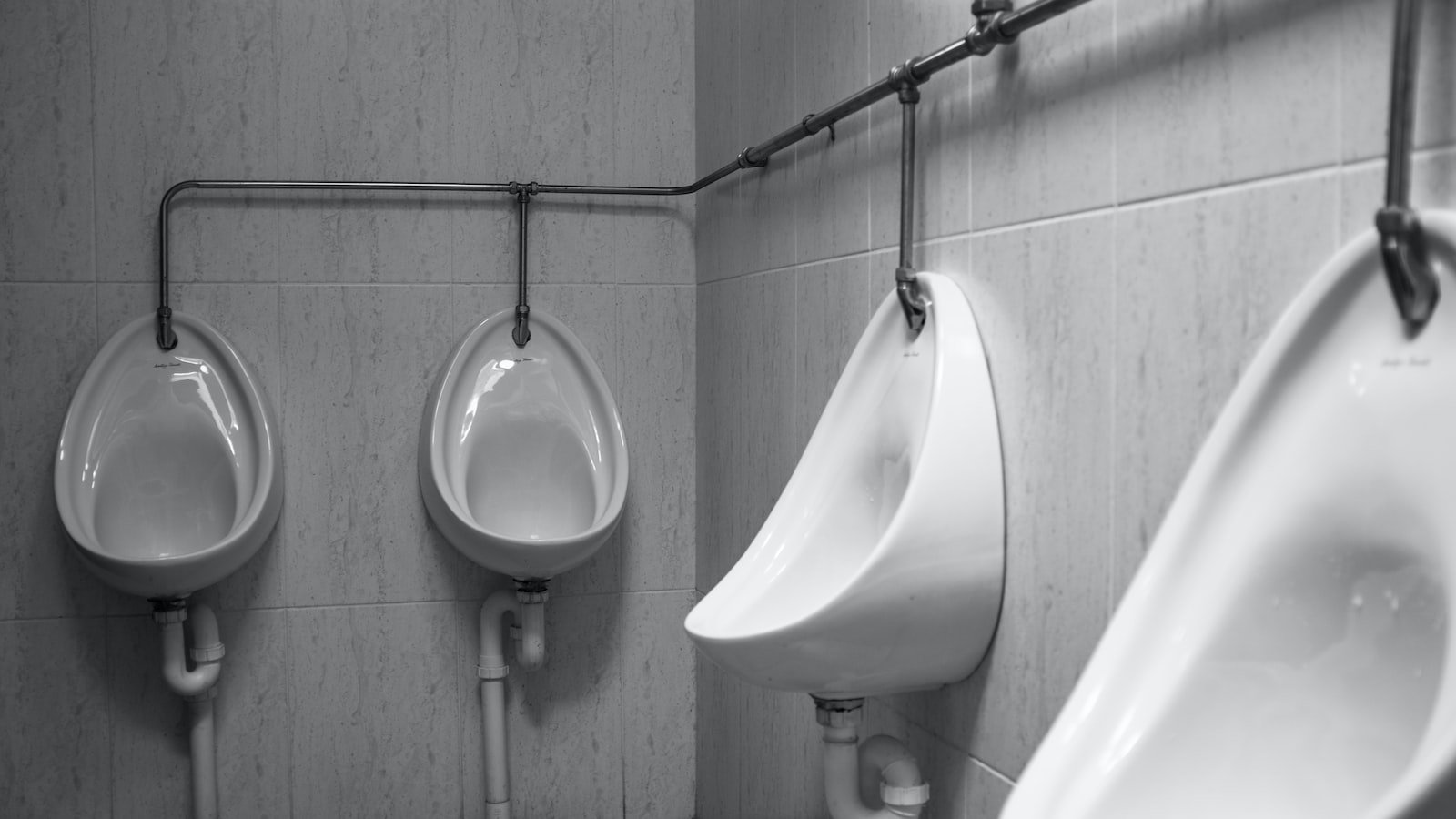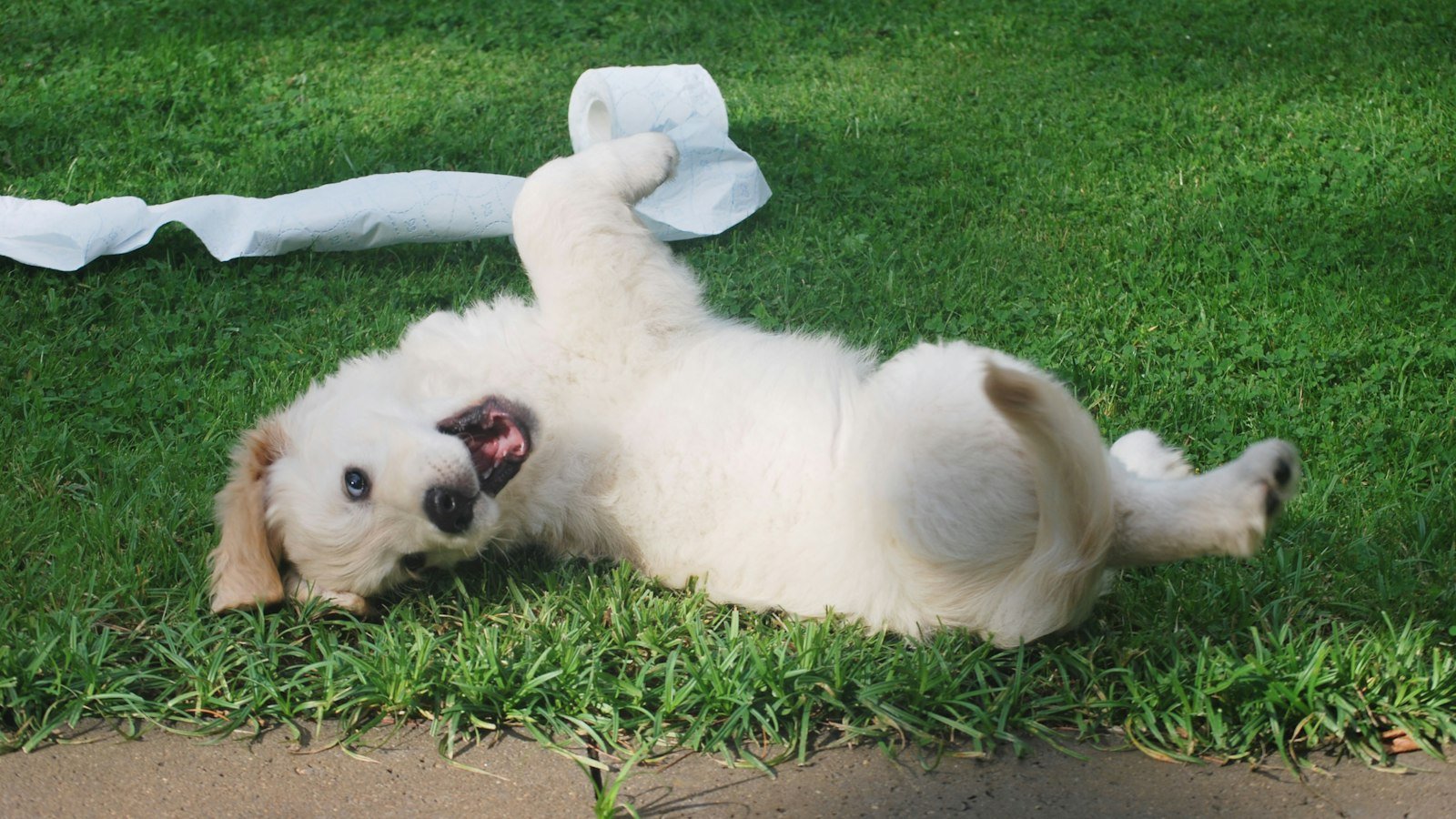Submissive urination can turn the most self-assured of puppies into timid puddle-makers, leaving eager trainers scratching their heads in bewilderment. As endearing as their big puppy eyes and wagging tails may be, the pools of urine that greet you at the door reveal more than just an accident—it’s a sign of submissive behavior. Behind this sensitive issue lies a delicate dance between a puppy’s eagerness to please and their fear of disappointment, making it a unique challenge that requires a tailored approach. In this article, we delve into the world of puppy training for submissive urination, exploring the underlying causes, effective techniques, and gentle guidance needed to navigate this delicate terrain. So, let’s lace up our compassionate boots, venture forth into the realm of puppy emotions, and fetch some invaluable insights to embrace both the struggles and triumphs of addressing this common yet often misunderstood issue.
Table of Contents
- Understanding Submissive Urination in Puppies: Causes and Triggers
- Empathetic Approach: Techniques for Training Puppies with Submissive Urination
- Creating a Positive Environment: Strategies for Preventing Submissive Urination in Puppies
- Building Confidence: Boosting Self-Assurance in Puppies to Alleviate Submissive Urination
- Effective Positive Reinforcement: Specific Training Methods to Address Submissive Urination in Puppies
- Q&A
- Insights and Conclusions

Understanding Submissive Urination in Puppies: Causes and Triggers
Submissive urination is a common issue that many puppy owners face, and it can be quite puzzling to understand why our furry friends engage in this behavior. It’s important to remember that submissive urination is not a result of a housebreaking problem or intentional disobedience. Instead, it is a natural response triggered by fear, anxiety, or excitement.
So what causes submissive urination in puppies? There are several factors at play:
- Genetics: Some dogs may inherit a predisposition towards submissive urination. Certain breeds, such as Retrievers or Spaniels, are more prone to this behavior.
- Past experiences: Puppies that have been previously scolded or punished too harshly may develop submissive urination as a way to avoid potential conflict or appease their owners.
- Excitement: Puppies who get overly excited, whether it’s encountering new people or experiencing stimulating environments, may involuntarily release urine as a submissive gesture.
Understanding the triggers that can set off submissive urination is also crucial:
- Approaching the puppy directly: A direct approach, looming over a puppy, or making intense eye contact can trigger submissive urination. Instead, try crouching down to the puppy’s level and using a calm, reassuring tone.
- Loud or sudden noises: Sudden loud noises, such as clapping or shouting, can startle puppies and lead to an immediate submissive urination response.
- Intense or exuberant greetings: Puppies may feel overwhelmed by enthusiastic greetings, resulting in an uncontrollable release of urine.
It’s essential to approach submissive urination with patience and understanding. Punishment or scolding will only exacerbate the issue and increase anxiety in your puppy. Instead, focus on positive reinforcement training techniques and gradually desensitize your pup to the triggers over time. Proper socialization, confidence-building exercises, and consistent training can help mitigate submissive urination and strengthen the bond with your adorable furry companion.

Empathetic Approach: Techniques for Training Puppies with Submissive Urination
If your adorable new puppy seems to have a problem with submissive urination, it is important to approach the situation with empathy and understanding. This common issue can often be resolved with proper training techniques that focus on building your puppy’s confidence and trust. Here are some useful methods to help you address submissive urination in a compassionate way:
- Positive reinforcement: Puppies respond well to positive reinforcement. Reward your furry friend with treats, praise, and affection when they exhibit confident behavior. This will help them associate positive outcomes with confidence and reduce their tendency to experience submissive urination.
- Patience and consistency: Consistency is key when training a puppy with submissive urination. Encourage all members of your household to follow the same training methods and avoid scolding or punishment. A patient and understanding approach will gradually build your puppy’s self-assurance.
- Desensitization: Gradually exposing your puppy to situations that trigger submissive urination can help them overcome their fear or anxiety. Start by introducing them to low-pressure environments and progressively increase the difficulty level as their confidence improves.
Remember, training a puppy takes time and effort, but with an empathetic approach, you can help your furry companion overcome submissive urination and develop into a confident, happy dog.

Creating a Positive Environment: Strategies for Preventing Submissive Urination in Puppies
Understanding Submissive Urination
Submissive urination is a common issue that many puppy owners face. It occurs when a puppy becomes excessively submissive and urinates when feeling threatened, anxious, or intimidated. This behavior often stems from a lack of self-confidence or previous negative experiences.
Strategies to Prevent Submissive Urination
Preventing submissive urination in puppies requires creating a positive environment that helps build their confidence and reduces feelings of fear or anxiety. Here are some effective strategies to consider:
- Positive Reinforcement: Use reward-based training methods to reinforce desired behaviors and boost your puppy’s self-esteem. Praise, treats, and playtime will motivate them to engage in positive actions and build confidence.
- Socialization: Expose your puppy to various people, animals, and environments from an early age. This will help them develop social skills, become more comfortable in new situations, and lessen their vulnerability to submissive urination.
- Consistency: Establish a consistent routine and set clear boundaries for your puppy. Predictability and structure can provide a sense of security and stability, helping to reduce their anxiety levels.
- Avoid Punishment: Never punish your puppy for submissive urination or any accidents. Instead, remain calm and gently redirect their behavior towards more positive actions. Punishment can worsen their anxiety and reinforce submissive behaviors.
- Patience and Understanding: It’s essential to be patient with your puppy as they learn and grow. Understand that submissive urination is a temporary behavior that will likely decrease with time, proper training, and a supportive environment.
By implementing these strategies, you can create a positive and nurturing environment that diminishes submissive urination in puppies. Remember, patience, consistency, and positive reinforcement are key in building your puppy’s confidence and helping them become well-adjusted adults.

Building Confidence: Boosting Self-Assurance in Puppies to Alleviate Submissive Urination
When it comes to adorable puppies, an unexpected puddle on the floor can often be a sign of submissive urination. This behavior typically occurs when a young pup feels overwhelmed, anxious, or lacking in self-assurance. As puppy parents, it’s important for us to understand that building our furry friend’s confidence is key to alleviating this issue. By implementing a few simple steps, we can help our puppies become more self-assured and reduce submissive urination incidents.
1. Positive Reinforcement: One of the most effective ways to boost a puppy’s confidence is through positive reinforcement. Whether it’s with treats, toys, or verbal praise, reward your pup’s good behavior consistently and promptly. This builds trust and strengthens your puppy’s belief in their abilities.
2. Obedience Training: Teaching your puppy basic obedience commands such as sit, stay, and come not only helps with their overall discipline but also improves their confidence. Break down training sessions into shorter, focused periods, and celebrate small victories along the way. This boosts their self-assurance and encourages them to succeed.
3. Socialization: Exposure to different people, animals, and environments is vital in developing a puppy’s confidence. Arrange playdates with well-behaved dogs, introduce them to various environments, and take them on gentle walks in quiet areas. Gradually exposing your puppy to new experiences creates a positive association in their mind, reducing anxiety and submissive urination tendencies.
Remember, building confidence in your puppy takes time and patience. With consistent positive reinforcement, obedience training, and purposeful socialization, you’ll soon notice a boost in your pup’s self-assurance, leading to a decrease in submissive urination incidents.
Effective Positive Reinforcement: Specific Training Methods to Address Submissive Urination in Puppies
Positive reinforcement is a powerful tool when it comes to addressing submissive urination in puppies. With the right training methods, you can effectively eliminate this behavior and help your puppy gain confidence. Here are some specific techniques to incorporate into your training routine:
- Consistency is key: Establish a predictable schedule for your puppy, including regular meal times and designated bathroom breaks. This helps them feel secure and reduces the likelihood of submissive urination.
- Reward good behavior: Whenever your puppy successfully eliminates outdoors or refrains from submissive urination, praise them enthusiastically. Use treats, verbal cues, and plenty of affection to reinforce their positive actions. This encourages your puppy to associate pee breaks with positive experiences.
- Avoid punishment: Never scold or punish your puppy for submissive urination. Punitive actions can exacerbate the problem, causing them to become even more submissive and fearful. Instead, focus on building their confidence and reinforcing positive behaviors.
- Gradual exposure: Help your puppy overcome their fear or anxiety by gradually exposing them to situations that trigger submissive urination. Start with low-stress environments and gradually increase the level of challenge as they become more comfortable. This will teach them to remain confident and in control, minimizing the likelihood of submissive urination.
Remember, every puppy is unique, and it may take time for these training methods to yield results. Stay patient, consistent, and provide plenty of positive reinforcement. With time and effort, you can help your puppy overcome submissive urination and foster a happy, confident companion.
Q&A
What is submissive urination in puppies?
Submissive urination is a behavior in which a puppy urinates as a result of fear, insecurity, or submission. It is a common issue for many puppies, particularly during their early stages of training.
Why do puppies engage in submissive urination?
Puppies engage in submissive urination as a way to show deference or submission to humans or other animals. It is a natural response to perceived threats or intimidating situations.
How can I differentiate between submissive urination and a house training accident?
Submissive urination typically occurs when the puppy is feeling scared or trying to appease someone or something. Accidents, on the other hand, may happen without any signs of fear or apprehension from the puppy.
What are some techniques for dealing with submissive urination?
To address submissive urination, it is important to create a calm and positive environment for the puppy. Try to avoid direct eye contact, encourage proper socialization, and use positive reward-based training methods to boost the puppy’s confidence.
Is punishment an effective approach to stop submissive urination?
No, punishment can exacerbate submissive urination as it reinforces fear and insecurity. It is crucial to use positive reinforcement techniques and focus on building the puppy’s confidence instead.
Is it necessary to consult a professional for puppy training?
In some cases, consulting a professional dog trainer or behaviorist can be beneficial. They can provide expert guidance, assess the underlying causes of submissive urination, and develop a customized training plan tailored to the puppy’s needs.
How long does it typically take to address submissive urination?
The timeframe for resolving submissive urination can vary depending on the individual puppy’s temperament, the severity of the issue, and consistency in training. With appropriate training and patience, many puppies overcome this behavior within a few months.
Can submissive urination be completely eliminated?
While it is possible for submissive urination to be significantly reduced or eliminated, complete elimination may not always be achievable. The focus should instead be on managing and minimizing the behavior through proper training and creating a supportive environment for the puppy.
Insights and Conclusions
As we bid adieu to our exploration of puppy training for submissive urination, it is important to embrace the sensitivity that surrounds this issue. Like tender, delicate petals, our adorable canine companions sometimes grapple with this involuntary response stemming from their submissive nature. By engaging in understanding and patient training methods, we can lead them towards a path of confidence and freedom from this quirky quirk.
Remember, dear reader, that the journey towards successful puppy training is a voyage that requires empathy and finesse. Each tiny paw that trods on this alluring path may face hurdles that test both their resilience and our own as compassionate pet owners. But fret not, for with genuine dedication and gentle guidance, we can lovingly mold these tender souls into self-assured canines, eager to please without fear of dampened greetings.
As we embark on the enlightening odyssey of puppy training, it is crucial to acknowledge the multifaceted nature of our four-legged friends. Beyond their wagging tails and infinite cuteness lies a universe of emotions and instincts, which make this realm of training an intricate dance between trust and vulnerability. In our pursuit of teaching our puppies, we too find ourselves learning valuable lessons in patience, understanding, and human to canine communication.
As this chapter closes its doors, may we take with us the wisdom to approach submissive urination with an open heart and a steady hand. Let us not be daunted by the occasional missteps or dampened enthusiasm but rather be fueled by a fervent desire to guide our puppies towards confident adulthood. For it is in these compassionate endeavors that we not only shape well-behaved companions but also foster an unbreakable bond built on mutual respect and unconditional love.
So, fellow puppy enthusiasts, let us embrace the sensitive issue of submissive urination as an opportunity for growth and connection. Let our actions and teachings transcend the limitations of words, offering our beloved pups a safe haven where they can flourish and bask in their identity as oh-so-adorable, beautifully flawed beings. With unwavering dedication, let us pave the way towards a seamless puppy training journey, one that embraces the delicacy of their nature and paves the path towards a future filled with triumph and tail-wagging harmony.
As an affiliate, my content may feature links to products I personally use and recommend. By taking action, like subscribing or making a purchase, you’ll be supporting my work and fueling my taco cravings at the same time. Win-win, right?
Want to read more? Check out our Affiliate Disclosure page.